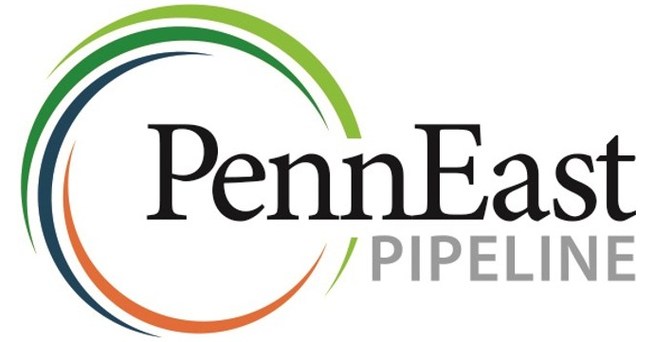A group of property owners has joined the call for the Federal Energy Regulatory Commission (FERC) to “re-hear” its approval of the PennEast Pipeline Co.’s application for a natural gas pipeline that stretches from Luzerne Co., Pennsylvania and into Mercer County, New Jersey.
Homeowners Against Land Taking-PennEast (HALT) filed the re-hearing request lat week, alleging violations of the federal Natural Gas Act and the 5th Amendment to the U.S. Constitution. HALT includes property owners in Hopewell Township.
FERC granted a certificate of public convenience and necessity to PennEast in January – one of many steps before the project can proceed. PennEast still needs approval from the New Jersey Department of Environmental Protection and the Delaware River Basin Commission.
Nevertheless, PennEast has filed more than 180 eminent domain claims in federal district court in Pennsylvania and New Jersey against property owners who refused to grant easements to allow the company to go onto their land to survey it. Eminent domain is the process that governments or agencies use to take private property for public use, with the promise of compensation made to the original property owners.
HALT’s request for a re-hearing is based on several alleged violations.
HALT claims FERC violated the federal Natural Gas Act and the 5th Amendment’s “due process” and “taking” clauses by approving PennEast’s application before the company obtained permission from other agencies, such as the NJDEP and the DRBC.
While FERC can approve an application and attach reasonable conditions to it, per the Natural Gas Act, those reasonable terms and conditions apply to the rates and terms of the initial gas deliveries under the act – not to the environmental review process, HALT said in its request for a re-hearing.
“Courts have upheld the rights of states to block a FERC-approved project under the Clean Water Act. When FERC grants a certificate without waiting for state and federal agencies to make determinations under federal laws, then FERC is illegally preempting the authority of those agencies,” according to HALT.
The request also noted that once FERC issues a certificate of public convenience and necessity, it grants permission to the applicant to use eminent domain to take land for the project if a property owner refuses to grant an easement.
But that was not the intent, HALT claims.
FERC “impermissibly extended its powers by prematurely granting conditional certificates” so that PennEast could use eminent domain to gain access to properties in order to gather needed information so it could comply with other rules and regulations, according to the re-hearing request.
The dissenting FERC commissioner wrote that the Natural Gas Act does not authorize the use of conditional certificates in order to grant eminent domain to the certificate holder to gather evidence required to establish the right to build the project. Only states can decide if applicants should have access to land before FERC issues a certificate.
The request for a re-hearing also notes that “the 5th Amendment requires due process before property is taken and public use for the taking of property. There is no due process if land is taken before the final determination of the need for the project has been made.”
“There can be no determination of public use before requirements for the ‘taking’ have been met. Finally, there cannot be a ‘public use’ if an agency denies a required certificate or permit, thereby stopping the project from being built,” the re-hearing request said.
PennEast had applied to the NJDEP for a required permit under the Clean Water Act, but the NJDEP declared it to be incomplete and declined to act on it. The DRBC has not opened a file or set a date for a public hearing on PennEast’s proposed natural gas pipeline.

